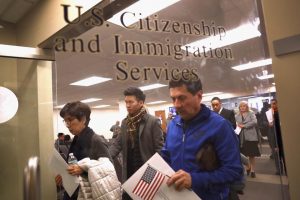By: Michelle Stein, 2L
With a new administration in power in the U.S. comes curiosity for prospective immigrants about the fate of immigration policies. Regarding employment-based visas, H-1B visa applicants are wondering how President Biden may undo the work of his predecessor. In June 2020, then-President Trump signed an executive order temporarily suspending access to several employment-based visas to mitigate job competition for unemployed Americans amid the COVID-19 pandemic and lower an unemployment rate of 13.3%.
The technology industry condemned the order, reasoning that the freeze on new H-1B and H-4 visas—which technology workers and their families rely on—would harm the U.S. economy. Representatives from Twitter Inc. and Amazon.com called the order “short-sighted,” contending that immigrant tech labor could help the U.S. economy recover from the damage of the pandemic. While the order only applies to first-time H-1B applicants, not those already working in the U.S., one executive said making it “more difficult for bright minds to work in the U.S. only benefits our competitors abroad.”
Highly educated foreign nationals and international students become employment-based immigrants through H-1B visas—which allow those in specialty occupations to temporarily work in the U.S. Research shows restricting H-1B visas pushes more jobs outside of the U.S. The prospect of employment after graduation attracts foreign students to American universities. Over 75% of full-time graduate students in technology fields at American universities are international students, but new enrollment of international students plunged by 72% in Fall 2020. Restricting H-1B visas can hinder foreign direct investment “to acquire, establish, or expand U.S. businesses,” which declined by over 37% between 2018 and 2019.
Trump utilized Section 212(f) of the Immigration and Nationality Act to suspend H-1B visa issuance. Section 212(f) grants the president broad authority to suspend the entry of immigrants when entry would be “detrimental to the interests” of the U.S. That broad authority works both ways; to rescind the order, Biden will need to show the entry of immigrants will not pose a detriment. Currently, Biden is still reviewing Trump’s order, which remains in effect through March.
While the order’s fate is still uncertain, Biden proposed a legislative bill, the U.S. Citizenship Act of 2021, on his first day in office. To help stimulate the U.S. economy, the bill would help clear employment-based visa backlogs, reduce lengthy wait times, eliminate per-country caps, allow foreign graduates of American universities in the STEM field to stay and work in the U.S., give dependents of H-1B visa holders work authorization, and more. Regarding those graduates, allowing workers educated and trained in the U.S. to “contribute their talents to the American economy is more important than ever.” The U.S. unemployment rate decreased to 6.3% in January 2021—a significant decrease from its peak at over 14% last April. While Americans are understandably concerned about job security throughout this ongoing health and economic crisis, removing barriers to employment-based immigration to circulate more educated individuals and jobs within the U.S. may have the long-term effect of reviving the U.S. economy.





